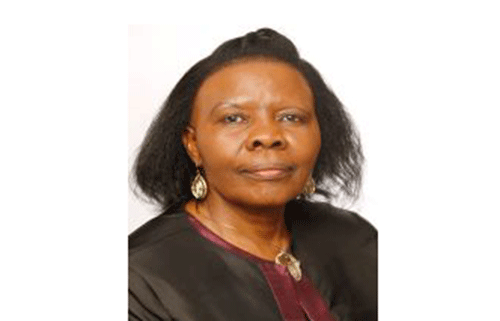Sakeus Iikela
JOHANNESBURG – Deputy Speaker of the National Assembly Loide Kasingo has called on all African countries to introduce national programmes aimed at educating young people on the ideals of Pan-Africanism to strengthen unity and promote development on the continent.
She said this is especially important to ensure that young people, “who are the leaders of tomorrow”, understand the importance of Pan-Africanism for development.
She made these remarks recently while contributing to a discussion on the state of the African Union (AU), led by AU Commission chairperson Moussa Faki Mahamat.
Kasingo, alongside National Council member Gerard Shiimi, represented Namibia at the Fourth Ordinary Session of the Sixth Parliament of the Pan-African Parliament (PAP) in Johannesburg.
She said “the revival of Pan-Africanism is essential for us to develop”, because citizens of the continent, including leaders, seem to have lost the values and ideals of Pan-Africanism.
“In Namibia, Pan-Africanism is lacking, especially among the youth. They do not understand what Pan-Africanism is all about, and therefore do not live up to its spirit. Many young people today focus on getting rich quickly, disregarding the spirit of sharing to ensure everyone has bread on their table,” she added.
She credited Founding President Sam Nujoma as a key advocate for the establishment of AU’s legislative body.
She proposed that future members of PAP undergo assessments to ensure they truly understand Pan-Africanism.
“Young people need to be educated about the AU and its associated institutions. This would ensure that future leaders understand and embody the spirit of Pan-Africanism,” she said.
She emphasised the need for African countries to reduce their dependence on foreign aid, and focus on self-funding to spur genuine development across the continent.
“If we don’t fund ourselves, we will keep on begging from others, although our continent is very rich,” she stated.
Addressing the AU’s funding challenges, Kasingo proposed the idea of an AU levy on resources like diamonds and oil, suggesting these funds support AU operations, including PAP.
“Maybe we should collect the levy from those harvesting our resources. Such a levy could then fund AU’s budget, and support PAP’s work,” she proposed.
Kasingo expressed concern that while Africa is rich in resources, its people remain poor due to mismanagement and external exploitation.
“Africa, as a continent, is rich, but its people are poor. We often choose to study abroad, rather than investing in our own institutions at home. This shows that we have yet to decolonise our minds,” she said.
In his opening remarks, PAP president Chief Fortune Charumbira said the parliament’s strategic plan is designed to deepen Africa’s economic integration, democratic governance, and stability.
“This strategic plan is our collective vision, crafted through extensive consultations with our stakeholders,” he remarked.
He noted that the parliament consulted with representatives from African Union institutions, civil society, and regional bodies to shape the vision of a united and empowered Africa.
The strategic plan aims to adapt PAP’s activities to Africa’s evolving social, political and economic landscape.
“The Pan-African parliament is not just another institution. It is the legislative voice of Africa, committed to fully involving our people in building the Africa we aspire for,” he stated.
He emphasised PAP’s mission to be the guardian of African citizens’ aspirations.
He highlighted the goal of enabling PAP to effectively fulfil its legislative and oversight roles, while championing human rights, economic integration and good governance.
He urged the parliament to commit to transparency and inclusivity, ensuring the strategy reflects Africa’s achievements and challenges alike. In his welcoming remarks, the fourth vice president of PAP, Djiddar Mamar, called the workshop “a crucial endeavour for the Pan-African Parliament and Africa”.
*Sakeus Iikela is a researcher at the National Council.



